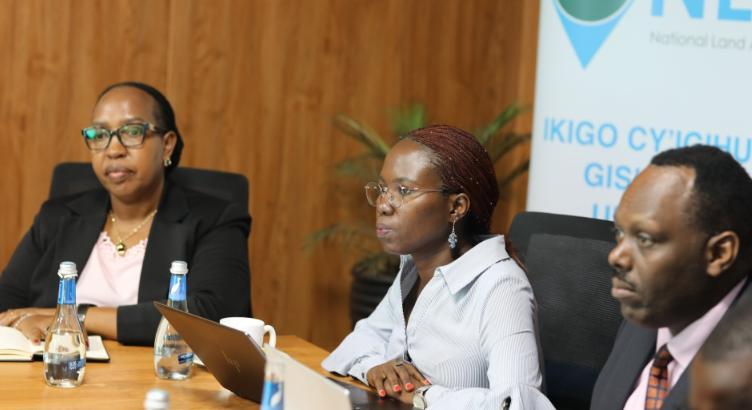Africa-Press – Rwanda. Rwanda’s National Land Authority (NLA) on June 20 unveiled a digital platform designed to transform the way land disputes are addressed, promising fairness, speed, and transparency.
Marie-Grâce Nishimwe, the NLA director general and chief registrar of land titles, said that the Land Disputes Management System (LDMS) will end the confusion and inefficiencies that have plagued land dispute resolution for years.
“Previously, people would submit land-related complaints via email, which often got forgotten among many others,” said Nishimwe. “This system offers a dedicated, streamlined platform to address disputes related to land registration and boundaries on time. It is about transparency and giving people a reliable way to track and resolve issues related to their land.”
The system allows users to file land-related complaints at the district or City of Kigali level. If the complainants are dissatisfied with the decision of the district or City of Kigali, they can escalate the matter to the NLA. However, if no party has appealed against the decision of the district or City of Kigali within 30 days, it becomes enforceable.
Nishimwe concluded that the LDMS is currently functioning well following pilot tests conducted in Nyagatare, Bugesera, Musanze, and the City of Kigali.
To ensure widespread use of the new system, especially among those less familiar with digital tools, Nishimwe noted that ‘digital ambassadors’ have been trained to help the people who cannot use the system independently.
So far, these digital ambassadors are available in 16 districts, with plans to expand nationwide in the coming fiscal year. Each cell, the smallest administrative unit in Rwanda, will have an ambassador tasked with helping citizens access land services online.
“We’re working to ensure no one is left behind as this digital transformation must be inclusive,” she added.
Rwanda’s National Land Authority (NLA) on June 20 unveiled a digital platform designed to transform the way land disputes are addressed, promising fairness, speed, and transparency.
Rwanda’s National Land Authority (NLA) on June 20 unveiled a digital platform designed to transform the way land disputes are addressed, promising fairness, speed, and transparency.
The system comes with features designed to boost user confidence and engagement; real-time case tracking, secure document uploads, and accessible status updates from any location, at any time.
Sylvain Muyombano, Head of the Land Administration Department, explained about those who still occupy land that lacks a Unique Parcel Identifier (UPI).
“To address this, we have trained land officers who will serve as the first point of contact before issues are entered into the system at the district level,” Muyombano said.
He also highlighted how the system will prevent recurring disputes.
“Some residents used to reopen resolved cases simply because the official who had handled them was replaced. Now, every case will be recorded and followed through transparently,” he said.
For Odette Yankurije, Deputy Ombudsman in charge of preventing injustice and corruption, the Land Dispute Management System is more than just a technical upgrade, but another tool in the fight against favoritism and bribery.
“Digital systems reduce physical contact, and where there is no physical interaction, corruption finds no room,” Yankurije said. “This platform ensures timely service delivery and builds trust in public institutions. We also encourage that training be extended to Irembo agents who often serve citizens at the frontline.”
As Rwanda’s population is projected to grow from 13.2 million in 2022 to about 16.3 million by 2032, land demand is also expected to rise.
With 11.9 million land parcels registered in Rwanda, ownership patterns highlight a dynamic and inclusive landscape.
According to the National Land Authority, women own about 19 per cent (2.2 million) of registered parcels while men solely own about 11.6 per cent (1.3 million parcels). About 49 per cent of land parcels are co-owned in the form of joint ownership among spouses or business partners.
About 2.2 million parcels fall under the ownership of state entities. Other notable ownership categories include business companies, which have 34,656 parcels, cooperatives (3,355 parcels), and foreign nationals (40,164 parcels).
For More News And Analysis About Rwanda Follow Africa-Press






